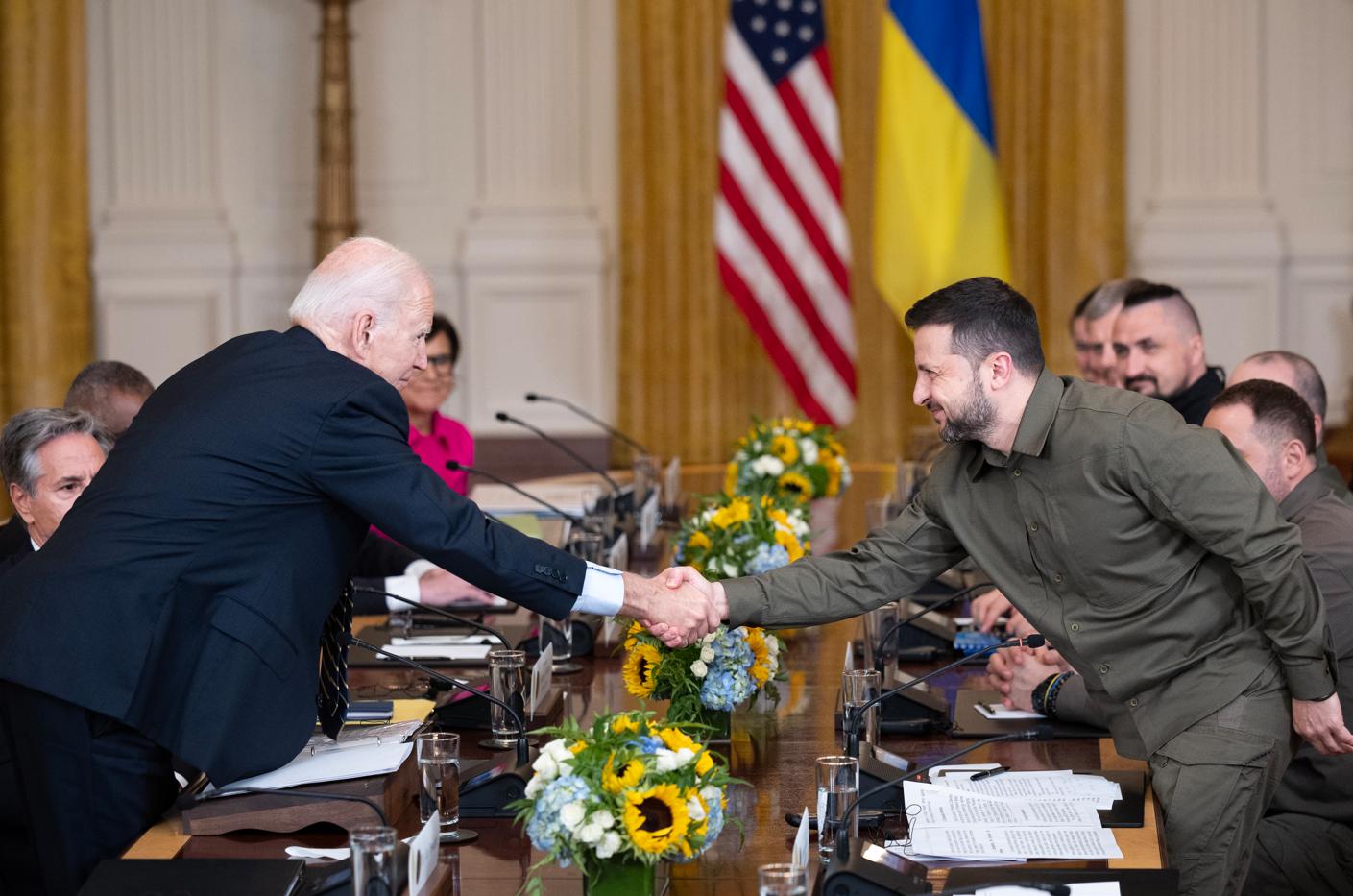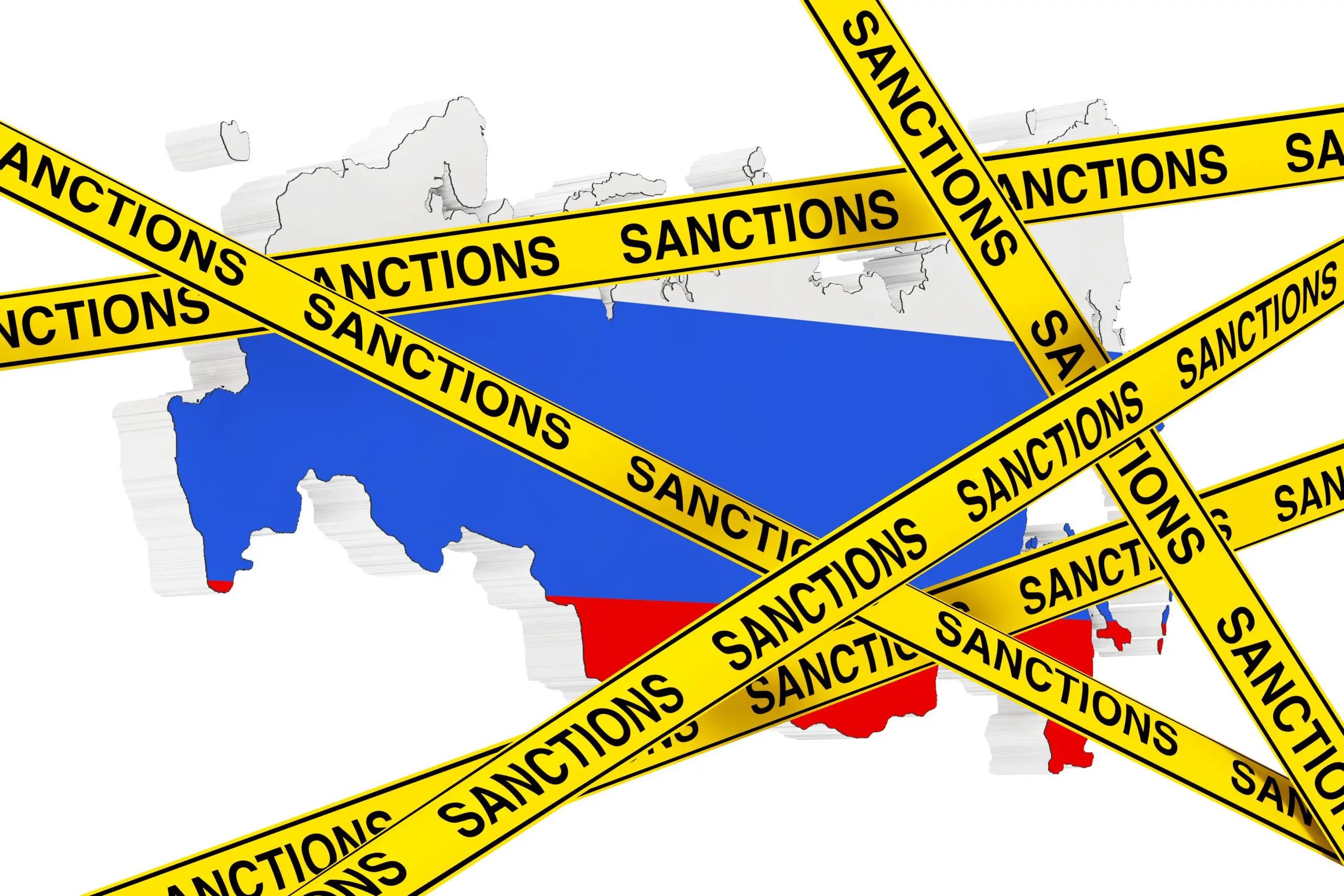Will Russia's seized assets be a game-changer for Ukraine? Funding another war
On the second anniversary of the Russo-Ukraine war, more people in the West discuss the different options for providing Ukraine with financial and military aid. Although some countries like Hungary and Slovakia openly resist providing Kyiv with a new aid package referring to the Ukrainian forces' inability to beat Russia, the U.S. and other NATO partners reaffirm their support for Kyiv.
However, there is no guarantee that the West will support Eastern European countries, like in 2022 and 2023. The United States is unlikely to provide significant military and financial aid to Kyiv soon, and it remains rather questionable if Europe can replace Washington as Ukraine's primary backer. Currently, President Joe Biden faces tough opposition in the U.S. Senate, which blocked the advance of tens of billions of dollars in military and economic assistance for Ukraine.
As such, Joe Biden at the White House warned of dire consequences for Kyiv — and a “gift” to Russia’s Vladimir Putin – if Congress fails to pass a $110 billion package of wartime funding for Ukraine and Israel as well as other national security priorities. Amid such controversial debates, some Western countries proposed the idea of seizing Russian assets abroad to fund the Ukrainian Army.

Shortly after such a proposal, the U.S. government sought options for seizing Russian assets in the West. The vast majority of Russia’s central bank assets that the G7 and the European Union froze are held by the E.U., with the U.S. only holding around $5 billion worth. However, President Biden has not yet signed off on the strategy, and many details remain under heated discussion.
Moreover, the Western allies argue that because Russia’s invasion has upended the international order, they have the right to engage in such countermeasures even though they are not directly at war with Russia. Unsurprisingly, official Moscow demonstrated ill reaction to such reports, warning the U.S. of consequences "if its assets will illegally be arrested."
Despite frequent discussion in the Western media, seizing Russian assets remained a highly challenging issue. In October 2023, Belgium became the first European country to seize the profits of Russia’s frozen $300 billion of Central Bank of Russia (CBR) reserves. Reportedly, Belgium will create a €1.7 billion fund from the taxes charged on profits generated from frozen Russian assets.
During the recent agreement between Brussels and Kyiv, the former has pledged to deliver 611 million euros ($665 million) in military aid to Ukraine in 2024. The announcement was significant because the figure was more than the amount Belgium provided to Ukraine since the beginning of the full-scale war, 496 million euros.

However, under current circumstances, many European countries are hesitant to opt to seize Russian assets as it would go against the principles of free markets. In addition, Russia would seize U.S., European, and other assets in response to such a move.
U.S. Treasury has long expressed concerns about a lack of legal authority for the U.S. to confiscate frozen Russian assets housed at the Federal Reserve Bank of New York but has recently embraced a request by G7 leaders to explore seizure options based on international law. Also, it will undermine the confidence of other countries in the United States as well as in the E.U. as economic guarantors. Therefore, such actions are fraught with very, very serious consequences.
The lion's share of the assets - essentially securities in which the Russian Central Bank had invested - are frozen in Euroclear, a depository based in Brussels. Hence, seizing such a large sum of money from another sovereign nation would be without precedent, and such an action could have unpredictable legal ramifications and economic consequences.
Consequently, confiscating the Russian assets and handing them over to Kyiv would ease the pressure on the West to finance Ukraine's war effort, but European officials dismiss it as too legally risky. That is why the United States is expected to push its NATO allies to fund and arm Kyiv in order to prevent Russia from achieving its strategic goals in the Eastern European country.








